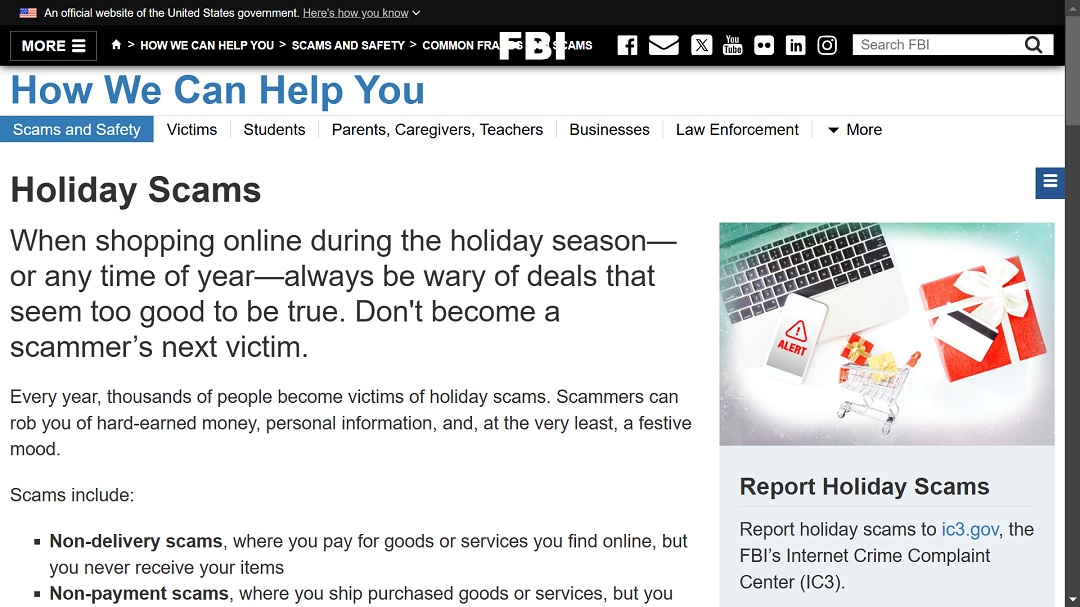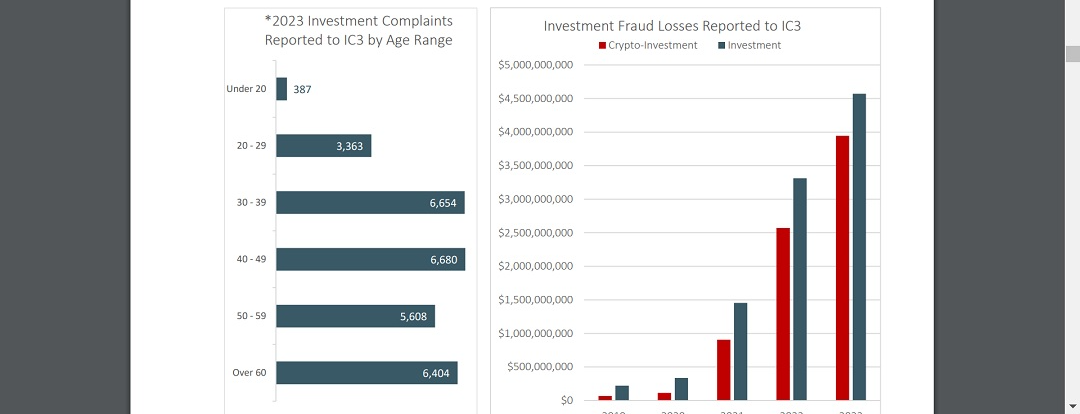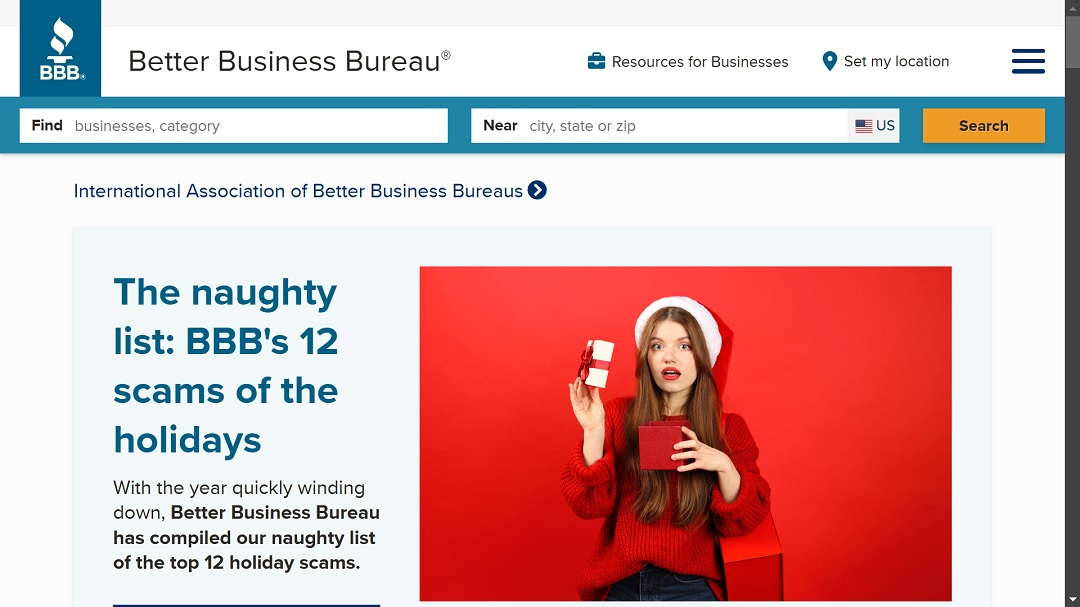With the holiday season upon us, United States law enforcement and government authorities are issuing warnings for the holiday season.
From the FBI to the IRS, the NYPD, and more, government agencies are sounding the alarm. In this report, we go over the scams expected to surge in the coming weeks. Your best defense is knowing how these scams work.
Holiday scams by the numbers: A wake-up call for the 2024 season
McAfee’s recent 2024 Global Holiday Shopping Scams Study found that 1 in every 3 Americans has fallen victim to an online scam during the holiday season. Of these, 58% lost money as a result of the scam, with nearly 1 in 10 losing over $1,000.
McAfee adds that 2024 will see a surge in holiday AI-powered scams and deepfakes. In fact, 1 in 3 of those surveyed aged 18–34 said they have already fallen for AI-generated celebrity endorsement scams.
However, AI-driven holiday scams are far from the only threat on the horizon for the next few months.

“Be on the lookout for these 4 ‘too good to be true’ scams,” the FBI says
The FBI says consumers should be on the lookout for holiday deals that are “too good to be true.”
Specifically, the FBI highlighted 4 types of scams for this holiday season:
- Non-delivery scams: In these scams, users are tricked into paying for goods or services online through fake listings or fake pages, and they never receive their items.
- Non-payment scams: This type of scam is the opposite of the scam above. In this scam, holiday sellers are the victims. They ship products but never receive payment.
- Auction fraud: This one involves buying something in an auction only to find out the product is not what was described.
- Gift card fraud: In this scam, criminals will trick victims into buying gift cards to pay them and then ask the victim to give them the card numbers and PINs.
The Internet Crime Complaint Center’s (IC3) 2023 report found that non-payment and non-delivery scams cost people more than $309 million that year. Credit card fraud accounted for another $173 million in losses.

IRS warns that holiday scammers are shopping for your personal data
This year, the IRS’s biggest holiday scam concern is your personal data. The IRS warns taxpayers to be extra cautious “because scammers are also shopping — for their next victim’s personal information.”
“The holiday shopping season and the fast-approaching tax season create a tempting target for identity thieves and scam artists,” IRS Commissioner Danny Werfel said in the December press release.
What types of scams are the IRS focused on? Phishing and sophisticated social engineering scams designed to trick users into giving up their Social Security number, confidential tax and financial information, bank account numbers, credit card numbers or passwords, and other data. These scams lead to tax-related identity theft and fraud.
Your package needs to be rescheduled for delivery
The IRS expects the common “package delivery” scam to increase during the holidays. This scam is very straightforward but can be very convincing.
Victims receive an email or other message in which they are informed that a scheduled delivery they made needs to be rescheduled. Scammers will direct users to fake sites where they can reschedule the delivery. The fake sites are designed to steal victims’ data.
I am contacting you from the IRS
Another common scam that the IRS expects to intensify is phishing emails or texts from criminals impersonating the IRS or others in the tax industry.
“These frequently involve unexpected good news, like a tax refund,” the IRS warns. “But they can also involve variants telling people they have a tax bill or have tax documents available to download.”
The goal of this scam is also to trick victims into giving away sensitive data, which criminals later use for identity theft, financial theft, or other crimes.
New York City authorities raise awareness to mitigate holiday scams
In New York City, the NYPD and the FBI have also released communications to raise awareness. New York authorities say the best defense against holiday scams is knowing how they work.
“The best thing you can do to be a savvy shopper is to know what scams are out there and take some basic precautions,” said James Smith, Assistant Director in Charge of the FBI New York Field Office.
The risks of secondary markets
If you are planning to save some money by purchasing holiday gifts from alternative markets, you might want to rethink your strategy.
The FBI New York office says that secondary market products may range from airline miles to gift cards, rewards credits, and/or similar in-demand products. However, cybercriminal activity on non-official e-commerce sites and secondary markets is abundant.
Their advice? Stick with trusted vendors and respected providers. In the long run, “too good to be true” scams can end up costing you much more.
The most reported scam: Social media shopping scams
According to the FBI, social media shopping scams are the most reported by victims. In these scams, victims fall for social media posts that offer vouchers, discounts, or gift cards. These posts may also offer holiday promotions or contests and may even be shared by someone you know.
The endgame of this scam is your personal data, which later will be used for other crimes. Additionally, stolen data is often sold and resold and eventually leaked on the dark web.
“If you click an ad through a social media platform, do your due diligence to check the legitimacy of the website before providing credit card or personal information,” the FBI says.

The giving holiday spirit scam
The holiday season often finds us in a more giving mood. This holiday generosity is admirable. However, when you feel the urge to help, make a donation, or participate in a project, double-check who the receiver really is — it might be a heartless con artist.
Charity scams are prevalent during the holiday seasons, although they are active all year round. You would be surprised at how skilled cybercriminals are at creating fake charity organizations that look legitimate. They might use AI-generated content and deepfake celebrity endorsements, too.
Whether you are considering seasonal philanthropy or want to make end-of-year tax-deductible gifts, before clicking on that “Donate” button, make sure that the funds you are donating will not fall into criminals’ hands.
Remember, a charity scam can start as a phone call, an email, an SMS, a Google search, crowdfunding platforms, or fake social media accounts and websites.
Who stole my holiday packages from my front door?
The New York Department of State’s Division of Consumer Protection warns that package thefts during the holiday are expected to increase. Yes, holiday package stealing is a thing. The Better Business Bureau (BBB) found that package thieves stole more than $18 billion in merchandise over the last year.
To make sure no one takes your packages:
- Keep track of your packages online in real-time.
- Schedule deliveries when someone is home.
- Enlist your neighbors’ help.
- Monitor your front door with a smart camera.
- Use Ship to Store or smart lockers.
- Enable signature confirmation delivery requirement.
The BBB’s naughty scam list
Another good resource to check out to be informed on holiday scams is the BBB’s list of holiday scams. This year, the BBB details 12 holiday scams.
While we have already covered most of the scams in the BBB naughty list, 2 of them deserve special attention.
Cute and dangerous holiday apps for children
The BBB warns that holiday apps for children where they can, for example, talk to Santa or “feed the live reindeer” may not be as lovely as they sound. If you are a parent, please take note.
When you download an app, it will request access to resources. If a children’s app, or any app for that matter, asks you for permissions like access to your camera, microphone, contact list, email, or files, consider this a clear red flag.
“Review privacy policies to see what information will be collected,” the BBB says. “Free apps can also contain malware.”
How do you know if an app is legit? First, only download apps from the Apple App Store or other official app stores. Official app stores offer a first layer of protection as they verify app developers.
You should also check how many downloads the app has and read the reviews. Few downloads, no reviews, or negative reviews are another clear red flag.
I am going to make an extra buck this holiday
Holiday demands drive seasonal job offers, which represents welcomed extra income for many. However, the BBB explains that employment scams topped the list of the riskiest scams for people aged 18 to 44 in 2023.
How to protect yourself against work scams? Talk to those offering a job in person if possible, or set up a video meeting. Check out the company. Ask questions. Never take a job offer where the employer says you have to pay to work, and never share your personal data with strangers.
Final thoughts: It takes 2 for a scam to work
Criminals have always leveraged the holiday seasons. That’s nothing new. However, the rise in AI abuse and misuse, social media scams, and online shopping make 2024 unique.
We expect a massive wave of all types of scams to sweep across the internet in the coming weeks. Most of the scams in this wave will be easy to detect by anyone, but others will not.
Never underestimate the talents of cybercriminals. Many of them have perfected the art of social engineering and can trick anyone.
Having said that, using strong passwords, enabling MFA, double-checking URLs, and staying away from things that sound “too good to be true” will stop the majority of scammers in their tracks.
Most importantly, remember that it takes 2 people for a scam to work: the scammer and the victim. Therefore, do not engage with suspicious strangers or messages, even if they come from one of your contacts. Always block, silence, and report scammers to help authorities and others who may find themselves in the same position.






